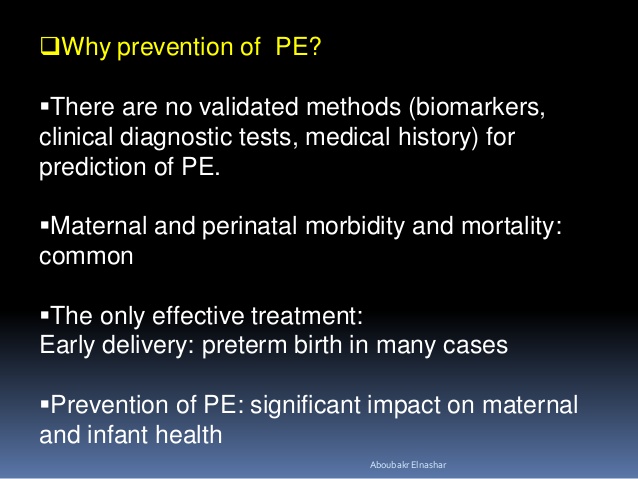Preeclampsia and Its Prevention
Pregnancy is always an exciting period, but it can also have its share of surprises, such as Preeclampsia. This condition begins at conception and usually continues throughout pregnancy, but the most obvious symptoms and indications of preeclampsia are usually manifested after birth, and rarely until the child is discharged from the hospital.
This condition is quite common in pregnant women and can cause serious problems. The most common symptoms of preeclampsia are nausea, vomiting, constipation, and diarrhea, though there are many more which can occur, depending on the stage of the condition. The condition is very life-threatening in some cases and therefore is always required to be monitored and diagnosed by a physician or midwife.
When a pregnant woman has preeclampsia, her body releases hormones in response to an increase in the amount of blood in the womb. When these hormones interfere with normal kidney and liver function, they can damage internal organs. Because preeclampsia causes severe dehydration, the chances of developing kidney stones are very high. A pregnant woman should see a doctor immediately if she develops any of the following symptoms: blood in the urine, nausea, vomiting, intense thirst, swollen ankles, shortness of breath, dizziness or dizziness, difficulty urinating, skin problems such as blisters. , rash or itching, swelling, tenderness, and pain in the abdomen, lower back, buttocks, thighs, or legs. In addition to the aforementioned symptoms, other signs and symptoms include pale or pink skin, weight loss, increased urination, dark urine, heart palpitations confusion, fainting, and seizures.
As with all serious complications, preeclampsia is treatable. The doctor can determine the correct course of treatment depending on your specific case and needs.
If you are in the first trimester of pregnancy, you can diagnose and treat the disease yourself, without medical assistance. However, it's important to remember that the sooner you start treating the condition, the less likely you are to have long-term complications. Also, as a mother in the case of women with preeclampsia, you should consult your doctor as soon as possible to avoid complications.
If you experience any of the above symptoms, you should always consult your doctor about seeking medical attention. While there are many medications that can help treat and prevent these symptoms, you may still need your doctor's help in certain situations, especially when the condition is getting worse. Medication and treatment options depend on how serious the problem is. Medications and treatments range from simple medications like paracetamol, aspirin, and ibuprofen to more specialized treatments like anesthesia and even surgery.

Pregnant women should always have regular prenatal check-ups, even if the condition does not progress to a point where it could lead to premature labor or complications. Your doctor can also make recommendations for other preventative measures that will help keep your body healthy and ward off preeclampsia and other complications in the future. Be sure to follow your doctor's advice carefully so that you don't develop a new condition, especially if your condition is extremely serious.
If you believe that you may be at risk of developing preeclampsia, make sure to talk to your doctor as soon as possible. He or she can help you understand what you can do to prevent the problem in the future and what to look for during your pregnancy. Remember, even the slightest risk of having a problem while pregnant can result in complications.
Another very important step to take is to stay away from alcohol and coffee until you give birth. Both of these are known to increase blood pressure and decrease your body's ability to fight infections. Though these substances may make you feel better, they could actually put you at risk for preeclampsia. So the next time that you feel the urge to drink, try to wait a bit longer and drink only water instead.
Taking prenatal vitamins can be a good way to stay healthy and prevent preeclampsia in its early stages. You may want to include prenatal vitamins in your regular diet and make sure to take them as part of your prenatal care. and treatment routine. This is one way to make sure that you get the nutrients that your body needs to fight off the condition. Once you are past your first trimester, however, it may be time to make a change.
Exercise plays a very important role in preventing preterm labor, so take the time to exercise before pregnancy. It doesn't have to be a strenuous workout program, but a nice brisk walk or jog around your neighborhood may do just the trick!